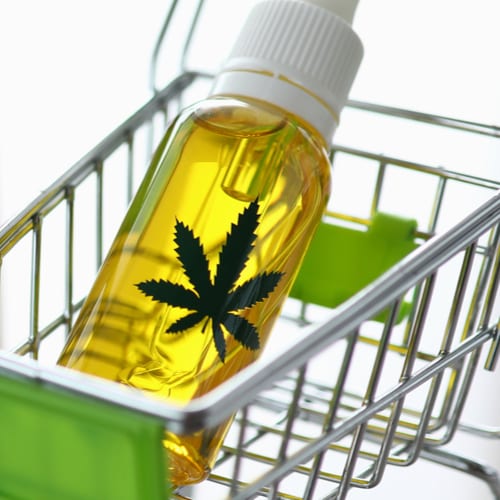
Nearly two weeks ago, another nation grew more open to cannabis and its legalization. In the last decade, the general public’s perception of cannabis has undergone an overwhelming change. Though the U.S. is still dealing with a near 50/50 split of the topic, the United Kingdom has made the sudden and medically driven decision to change the way they deal with cannabis.
According to reports, the UK has approved medical cannabis for use with a physicians’ prescription. It may not seem like much seeing -as much of the U.S. and a few countries have gone the recreational route- but, it’s a strong step to join the medical market while also allowing physicians to openly discuss and recommend cannabis. It’s a step that many have yet to tackle amongst the plethora of underlying issues that come along with legalization. Despite those other issues, the reasons for this change reside in a recurring obstacle for the medical market. Two children, along with their parents, fighting for the right to alternate medication is what drove the UK to change their stance.
Months before Home Secretary, Sajid Javid, introduced the medical and ethical driven change in legislation, the UK was dominated by stories that weren’t as positive for cannabis or medical advancement. Alfie Dingley was one of the said cases. The six-year-old suffers from a rare genetic mutation that gives him epileptic episodes, enduring nearly 30 seizures a day. After trying cannabis oil, however, Alfie’s parents thought it was “nothing short of a miracle”. As the substance was still illegal for anything more than medical research, the family relocated to the Netherlands in 2017 where they could access legal medicine for Alfie. Unfortunately, due to financial issues, the family was forced back to Britain where they ran into complications. The Dingley parents pleaded with the NHS to get their son his medication but, it wasn’t until another similar case appeared that it seemed a possibility.
Billy Caldwell is the second legislation changing child whose mother was placed under house arrest for his medicinal cannabis use. The 12-year old is autistic and suffers from epileptic episodes as well. He was due to go back to his home in Co Tyrone of Northern Ireland for his cannabis-derived medicine but, were forced to stay in Belfast. With the charges against his mother and the rules imposed b the Irish authorities, the family was forced to take four-hour round trips twice a day for his medication. As the situation progressed, however, Billy was placed under house arrest and denied his medication like Alfie was. When the family returned to London, any medication Billy did have was confiscated, resulting in an outcry from the public. It wasn’t until said outcry that the Javid gave an emergency exemption for his medication. As the following result, Alfie’s parents insisted he be given the same exemption. Javid commented on the situation before the legislative change noting that, those with “exceptional clinical need” should have access to cannabis treatment.
“Recent cases involving sick children made it clear to me that our position on cannabis-related medicinal products was not satisfactory…That is why we launched a review and set up an expert panel to advise on licence applications in exceptional circumstances…This will help patients with an exceptional clinical need but is in no way a first step to the legalisation of cannabis for recreational use.”
-Sajid Javid, BBC News
Both families have been overwhelmed by the decision to aid their children; the decision to ease the strain of safer options in healthcare have been another miracle for both Billy and Alfie. Cannabis was previously viewed as a Schedule 1 substance, meaning no therapeutic or medicinal value and being highly defective. The decision by the Home Office will put certain cannabis-derived products into Schedule 2 – those that have a potential medical use.
The step is still some ways behind other nations but, for the UK it’s a decision fueled by the welfare of others which is what cannabis is all about.
The nation hopes to have the decision finalized by the end of the Fall but, has no interest in pursuing a recreational market. Both children still hold exemptions to allow for their medicine in the meantime. The general public is onboard as well with 51% agreeing it should be treated like other legal substances. Though the nation is only looking to expand into the medical realm it could prove to be a nation to watch as the changes fully take place. In the case of Alfie and Billy, it’s refreshing to see a nation use reason in their case instead of a negative stigma developed half-a-century ago.





